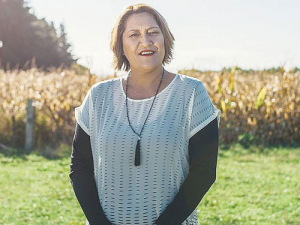Dairy Women’s Network and NZAgbiz Partner to Deliver Evidence-Based Calf Rearing Practices
A new partnership between Dairy Women’s Network (DWN) and NZAgbiz aims to make evidence-based calf rearing practices accessible to all farm teams.
 Associate Agriculture Minister Meka Whaitiri says the Government is helping women to reach their farming leadership potential.
Associate Agriculture Minister Meka Whaitiri says the Government is helping women to reach their farming leadership potential.
A Dairy Women’s Network (DWN) programme has been named as the recipient of two years of funding support from the Government.
The funding, which totals $473,261, comes from the Ministry for Primary Industries Sustainable Food and Fibre Futures fund and will go towards the Farming for the Future Leader’s Programme.
“Supporting these women to reach their farming leadership potential will deliver long lasting economic, social, cultural and environmental benefits to New Zealand,” Associate Agriculture Minister Meka Whaitiri says.
The programme will pilot a programme of wrap-around services for women, developing training content and a central knowledge hub as well as providing coaching to support female business group leaders in the dairy sector.
“The members of the programme will create a positive impact that is far reaching, by providing channels to share solutions and innovations with their businesses, partners, farm teams, neighbours and communities,” says Whaitiri.
“The Government is committed to working with regional communities to help them reach their economic and social potential.
“These strong social connections and access to tools and support from this programme will help build resilience, both for these women and for their farming businesses,” Whaitiri says.
Jules Benton, chief executive of DWN, says the programme will empower farming women to create innovative solutions to a variety of challenges and issues facing farmers.
“But the truly exciting part of this programme is the ability of those who are part of it to share their learnings with their communities and the 11,000 DWN members,” says Benton.
She says the primary goal of the programme is to enable and empower DWN members to farm for the future so the sector, which she says is experiencing rapid change, can grow and adapt with a positive focus. “We encourage our members to challenge the status quo and this programme will allow, not only that, but an on-sharing of their experiences and knowledge to help others in the group drive change in their own environments, community and businesses,” Benton says.
“I truly believe that this professional development will lead to great things in our farming sector; creating knowledge, leadership and innovation to empower the industry and aid with decision making in the future.”
Fonterra’s impending exit from the Australian dairy industry is a major event but the story doesn’t change too much for farmers.
Expect greater collaboration between Massey University’s school of Agriculture and Environment and Ireland’s leading agriculture university, the University College of Dublin (UCD), in the future.
A partnership between Torere Macadamias Ltd and the Riddet Institute aims to unlock value from macadamia nuts while growing the next generation of Māori agribusiness researchers.
A new partnership between Dairy Women’s Network (DWN) and NZAgbiz aims to make evidence-based calf rearing practices accessible to all farm teams.
Despite some trying circumstances recently, the cherry season looks set to emerge on top of things.
Changed logos on shirts otherwise it will be business as usual when Fonterra’s consumer and related businesses are expected to change hands next month.
OPINION: Fonterra may be on the verge of selling its consumer business in New Zealand, but the co-operative is not…
OPINION: What does the birth rate in China have to do with stock trading? Just ask a2 Milk Company.